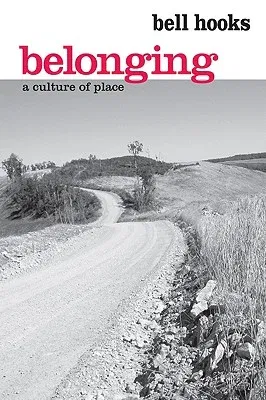What does it mean to call a place home? Who is allowed to become a
member of a community? When can we say that we truly belong?
These are some of the questions of place and belonging that renowned
cultural critic bell hooks examines in her new book, Belonging: A
Culture of Place. Traversing past and present, Belonging charts a
cyclical journey in which hooks moves from place to place, from country
to city and back again, only to end where she began--her old Kentucky
home.
hooks has written provocatively about race, gender, and class; and in
this book she turns her attention to focus on issues of land and land
ownership. Reflecting on the fact that 90% of all black people lived in
the agrarian South before mass migration to northern cities in the early
1900s, she writes about black farmers, about black folks who have been
committed both in the past and in the present to local food production,
to being organic, and to finding solace in nature. Naturally, it would
be impossible to contemplate these issues without thinking about the
politics of race and class. Reflecting on the racism that continues to
find expression in the world of real estate, she writes about
segregation in housing and economic racialized zoning. In these critical
essays, hooks finds surprising connections that link of the environment
and sustainability to the politics of race and class that reach far
beyond Kentucky.
With characteristic insight and honesty, Belonging offers a remarkable
vision of a world where all people--wherever they may call home--can
live fully and well, where everyone can belong.

